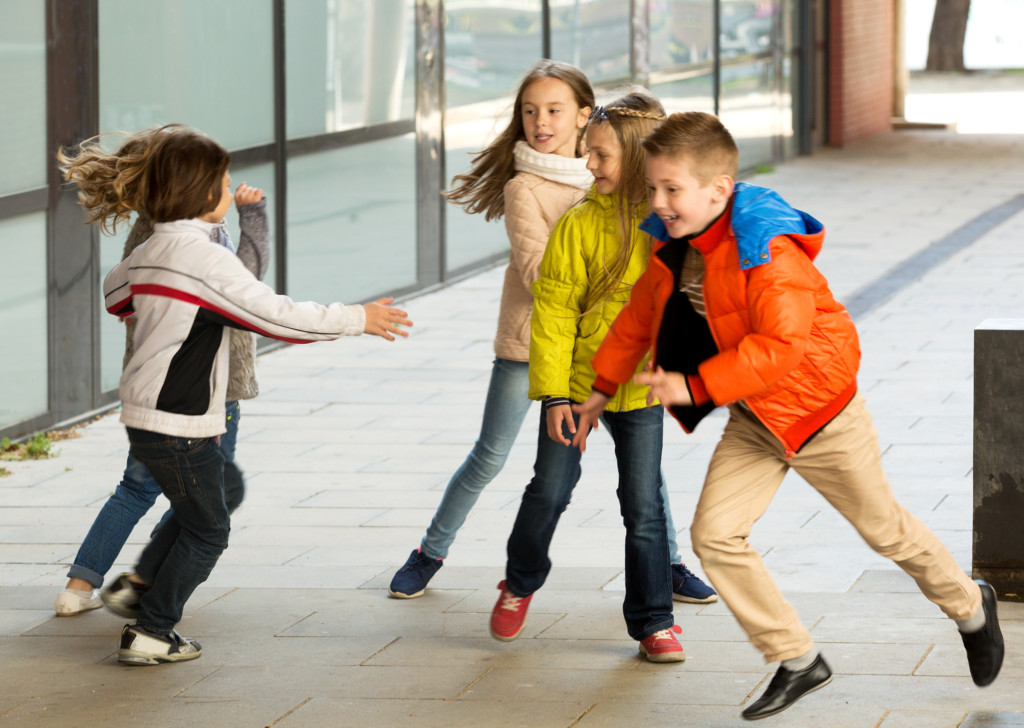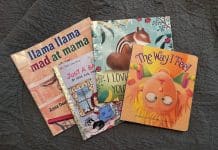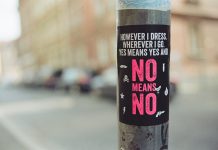In the U.S., one in three women and one in six men have experienced sexual assault in their life.
It makes me physically ill to say this, but the chances are good that one of my daughters, and yours, will be a victim of a sexual assault in her lifetime. Whatever your political persuasion, whatever you’ve thought watching the news over the last few weeks, this is a reality we have to recognize as moms. Our daughters will be assaulted, and someone’s sons, according to the statistics, will be the ones assaulting them.
As parents, we have to prepare our kids both for the world we want them to live in and for the world as it is.
This means I tell my daughters that their bodies are their own, that when they say stop, the other person has to stop, no matter what. But this also means, as they move into their teens, that I tell them more often that what they’re wearing is too short, that they’re going to attract attention I don’t want them to have to deal with yet. This means my daughters read books about fierce, powerful women. But this also means we talk with the girls about sexual assault; they have known what rape is from a young age. I’m pretty sure my friends with sons are not having the same conversations at the same ages that I am. This is the world we live in.
I have begun to prepare myself for my daughter’s future sexual assault.
It was dark on the playground last week when I got my first chance to practice. It was after open house at her elementary school, and the kids were running a little wild enjoying the sugar in their bloodstream from the celebratory cake, the slide and the monkey bars in the dark. We parents watched from the sidelines chatting with one another. Well, we tried to watch, but it was dark and the kids seemed to be having innocent fun when it happened. I need to be clear here though, my daughter was not sexually assaulted on the playground.
 What she was, was hurt by a gang of boys. They chased her in the dark. One boy punched her in the arm. They taunted her. They pushed her to the ground so the woodchips scraped her knees. They scared her.
What she was, was hurt by a gang of boys. They chased her in the dark. One boy punched her in the arm. They taunted her. They pushed her to the ground so the woodchips scraped her knees. They scared her.
My daughter was not sexually assaulted, but when she came off the playground sobbing, I was more careful in my response than I would have been a year ago. A year ago, before #metoo, I would have brushed off her clothes, given her a once over and a hug, and told her, “You’re fine!” She would have sniffled but, taking her cue from me, would try to get over it. Over the last month, multiple women I know and love have shared their personal stories of being sexually assaulted. They have not “gotten over it.”
My daughter was not sexually assaulted, but because I love these women, I am changing how I speak to her when she is hurt.

My daughter was not sexually assaulted, but as we walked back to our car and she was able to tell me more what had happened, I told her, “What those boys did was wrong. That was not ok.” I would not have said this a year ago. Some kids play rougher than others, I know. My own daughters have hurt each other wrestling on our living room floor. Kids hurt one another all the time and as moms, we typically try to address it as quickly as possible so we can get our- holy moly, are you two fighting again?!- dinner started. But it’s more important than ever that we help kids figure out the line between what’s innocent fun and what’s overly aggressive and what’s assault. Whatever happened on the playground, in the dark, I wanted to make clear to my daughter that a line had been crossed and that it was not ok.
My daughter was not sexually assaulted, but I asked my daughter if she wanted to report what had happened. Did she want us to talk to her school, to talk to the boys who scared her? We could talk to your principal, I told her. We could make it clear to those boys that it’s not ok to hurt our friends on the playground at any time, day or night. My daughter shook her head no. She didn’t want to talk about it anymore. She didn’t want to go to the authorities and try to explain everything that had happened.
And then, because I live in the world- because I have grown up in the world- as it is and not how I wish it were, I asked my daughter what she had been doing before the boys hurt her. Had she done anything to provoke the boys? Was she at fault for this in some way?

It’s been a few days and this incident on the playground has faded from her memory, but not mine. I wonder how she’s going to feel the next time she wants to play outside in the dark with her friends. Will she hesitate? Will she think twice? Will she hold back from making a joke with a friend? Will she wonder what boys might do to her if she plays with them? Will she be afraid of what might happen to her if she dares to run in the dark?
Chase games continue on the playground at school this week, I know, in the sunshine. But I ask my daughter over dinner if she feels comfortable with this game. I ask her if her friends feel comfortable with this game. Those hugs you give each other when you catch one another, does everyone like those hugs? How do you know? Can you ask next time? Will you notice if someone doesn’t like it? Will you stop if they tell you to? I want my daughter to understand consent now. I want her to think about it at its most basic level, whether our friends want our touch or not, while she’s young.
I hate that I am preparing myself for her future sexual assault, but I’m doing it because that’s the world we live in. I’m laying what I think of as critical groundwork for her safety and recovery in the future all the while I want her to live in the world as it should be, not this one.










Thank you, AY, for reading and for thinking so carefully about what and how to teach your son. It’s critical that we all keep talking about this together if we’re going to love in the world we want to.live in!
Super powerful, deep, tragic, honest, real. These are the conversations to be having with our kids. Consent has to be discussed outside the normal boundaries of ‘sex’ and about our bodies generally so that consent is inclusive to how we hold power and control over our own physical self. My son turns three tomorrow and I already ask myself what can I be saying and modeling now to start to have him understand the rights he has over his body, but the respect and boundaries he has to hold for others.’ I’m looking for those everyday moments to address this topic in a way he can understand it, to prepare him for the world we live in, prevent him from experiencing victimization or becoming the victimizer, to arm him with tools to help create a better world and a better way forward. Thank you for this post and for being a part of this dialogue.
Very well “spoken” Mary Beth. During our recent too short visit with your mom and dad it was obvious how proud they are of you and your brother
Thanks, Uncle Thom!